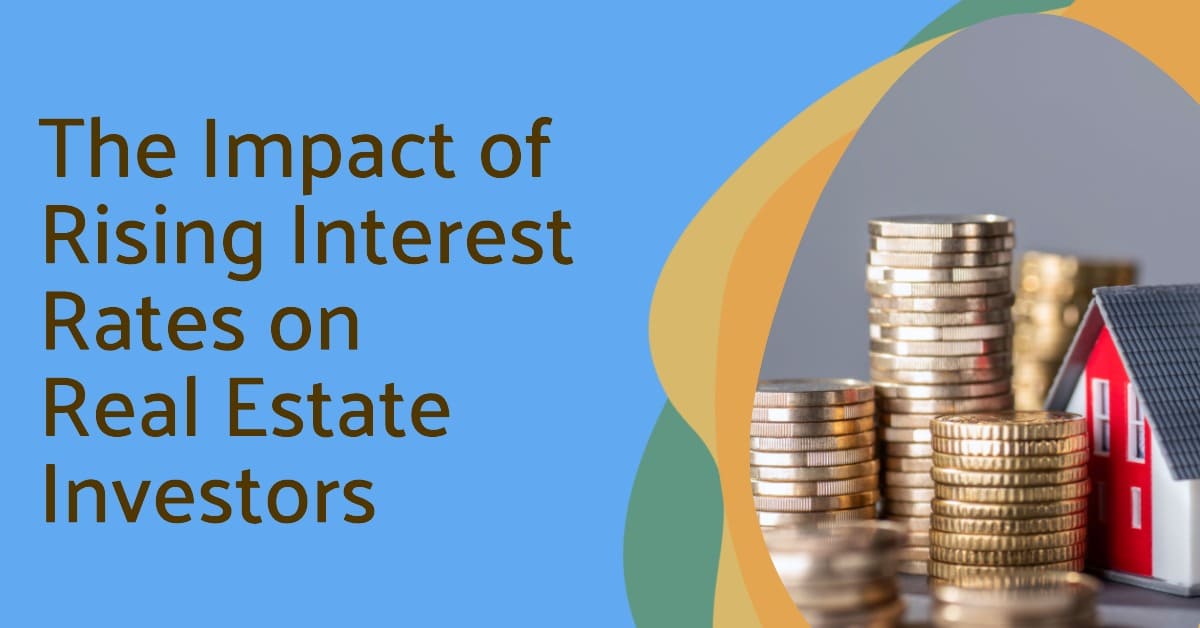

Finance
Why Do Jumbo Loans Have Lower Rates?
Published: February 18, 2024
Discover why jumbo loans offer lower rates and how they can benefit your finances. Learn how to take advantage of these favorable terms.
(Many of the links in this article redirect to a specific reviewed product. Your purchase of these products through affiliate links helps to generate commission for LiveWell, at no extra cost. Learn more)
Table of Contents
Introduction
Purchasing a home is a significant milestone for many individuals and families, often necessitating financial assistance in the form of a mortgage. While conventional mortgages are suitable for most homebuyers, those seeking high-value properties may require a different approach due to the size of the loan. This is where jumbo loans come into play. Jumbo loans are designed to accommodate the purchase of luxury or high-priced homes that exceed the conforming loan limits set by government-sponsored enterprises such as Fannie Mae and Freddie Mac.
Understanding the intricacies of jumbo loans, including their unique features and benefits, is crucial for individuals considering this option. Additionally, comprehending why jumbo loans often boast lower interest rates compared to conventional mortgages is equally important. In this article, we will delve into the world of jumbo loans, exploring the factors that influence their interest rates and ultimately uncovering the reasons behind their comparatively lower rates. By shedding light on this topic, readers will gain valuable insights into the dynamics of jumbo loans, empowering them to make informed decisions when navigating the realm of high-value real estate financing.
Understanding Jumbo Loans
Jumbo loans are a specialized category of mortgage loans that cater to individuals seeking to finance properties with purchase prices that exceed the conforming loan limits established by government-sponsored enterprises. These loan limits are set annually and vary by location, with higher limits applicable to areas characterized by elevated housing costs. In 2021, the conforming loan limit for most areas in the United States stood at $548,250, although it can be significantly higher in certain high-cost regions.
Unlike conventional mortgages, which are typically backed by government-sponsored entities, jumbo loans do not conform to these guidelines. As a result, they are not eligible for purchase by Fannie Mae or Freddie Mac. Instead, lenders assume the risk associated with jumbo loans, necessitating stringent eligibility requirements for borrowers. Individuals applying for jumbo loans are often required to demonstrate exceptional credit scores, substantial income, and ample reserves to qualify for these sizable loans.
Furthermore, jumbo loans may entail larger down payments compared to conventional mortgages, with typical requirements ranging from 10% to 20% of the property’s purchase price. Given the substantial financial commitment involved, borrowers must undergo thorough financial scrutiny to ensure their ability to manage the loan effectively.
Understanding the distinct nature of jumbo loans is crucial for prospective homebuyers aiming to secure financing for high-value properties. By familiarizing themselves with the unique features and requirements of jumbo loans, individuals can navigate the application process with confidence, paving the way for successful homeownership in the luxury real estate market.
Factors Affecting Jumbo Loan Rates
Several key factors influence the interest rates associated with jumbo loans, shaping the financial landscape for high-value property financing. Understanding these determinants is essential for individuals considering jumbo loans as a means of purchasing luxury homes. By gaining insights into the elements that impact jumbo loan rates, borrowers can make informed decisions and leverage favorable conditions to secure competitive interest rates.
- Credit Score: A borrower’s credit score plays a pivotal role in determining the interest rate for a jumbo loan. Lenders assess the creditworthiness of applicants, with higher credit scores typically translating to lower interest rates. Individuals with excellent credit profiles are viewed as lower-risk borrowers, making them eligible for more favorable loan terms.
- Income and Assets: Lenders evaluate a borrower’s income and assets to gauge their financial stability and repayment capacity. The presence of substantial income and assets can bolster an applicant’s credibility, potentially leading to lower interest rates on jumbo loans.
- Debt-to-Income Ratio: The debt-to-income ratio, which compares an individual’s monthly debt obligations to their income, is a critical metric in jumbo loan assessments. A lower debt-to-income ratio signifies a borrower’s ability to manage additional debt responsibly, potentially resulting in more attractive interest rates.
- Market Conditions: The prevailing economic climate and market conditions can significantly impact jumbo loan rates. Fluctuations in interest rates, inflation, and monetary policy can influence the cost of borrowing for jumbo loans, necessitating a keen awareness of macroeconomic factors.
- Loan Amount and Loan-to-Value Ratio: The size of the loan and the loan-to-value ratio, which compares the loan amount to the property’s appraised value, are instrumental in determining jumbo loan rates. Lower loan-to-value ratios and loan amounts may lead to more favorable interest rates.
By considering these influential factors, borrowers can proactively position themselves for favorable jumbo loan rates, optimizing their financial prospects when pursuing high-value real estate acquisitions. Additionally, collaborating with reputable lenders and financial advisors can provide valuable guidance in navigating the complexities of jumbo loan rate determinants, empowering borrowers to make informed and advantageous financial decisions.
Why Jumbo Loans Have Lower Rates
Contrary to conventional expectations, jumbo loans often feature lower interest rates compared to their conventional counterparts, defying the assumption that larger loan amounts inherently equate to higher borrowing costs. This intriguing phenomenon stems from various factors that collectively contribute to the comparatively favorable interest rates associated with jumbo loans.
- Risk Assessment and Borrower Profile: Lenders meticulously evaluate the risk associated with jumbo loans, scrutinizing the financial profiles of borrowers in great detail. As jumbo loan applicants typically possess substantial assets and high credit scores, they are perceived as low-risk borrowers, prompting lenders to offer lower interest rates to attract and retain these coveted clients.
- Asset Retention and Client Relationships: Lenders often seek to cultivate enduring relationships with affluent clients who require jumbo loans. By offering competitive interest rates, financial institutions can entice high-net-worth individuals to retain their assets within the institution, fostering loyalty and long-term financial partnerships.
- Market Competition and Yield Spreads: The competitive landscape within the jumbo loan market can influence interest rates, with lenders vying to capture market share and expand their high-value lending portfolios. This competition can lead to narrower yield spreads and reduced interest rates for jumbo loans, benefiting borrowers in the process.
- Portfolio Diversification and Risk Mitigation: Lenders view jumbo loans as a means of diversifying their loan portfolios and mitigating risk. By extending jumbo loans to creditworthy individuals, lenders can enhance the diversity of their assets and reduce concentration risk, thereby facilitating the provision of lower interest rates on these sizable loans.
Moreover, the perception of jumbo loans as prestigious financial products tailored for affluent borrowers can influence the interest rate dynamics, as lenders strive to position themselves as preferred providers of high-value financing solutions. This positioning often entails offering competitive interest rates to attract discerning clientele and fortify their standing in the luxury real estate lending arena.
By comprehending the multifaceted reasons behind the lower interest rates associated with jumbo loans, borrowers can appreciate the strategic considerations and market dynamics that underpin this advantageous lending landscape. Armed with this knowledge, individuals pursuing jumbo loans can engage with lenders from a position of informed confidence, leveraging the potential for favorable interest rates to facilitate their aspirations of acquiring exceptional properties in the luxury real estate sphere.
Conclusion
In conclusion, the realm of jumbo loans represents a compelling avenue for individuals seeking to finance high-value properties, offering distinct advantages and unique interest rate dynamics compared to conventional mortgages. By gaining a comprehensive understanding of jumbo loans and the factors influencing their interest rates, prospective borrowers can navigate this specialized lending landscape with confidence and insight.
From the stringent eligibility criteria and substantial down payment requirements to the influential factors shaping jumbo loan rates, it is evident that securing financing for luxury real estate entails a nuanced and strategic approach. The favorable interest rates associated with jumbo loans defy conventional assumptions, reflecting the intricate interplay of risk assessment, market competition, and client relationships within the high-value lending sphere.
By recognizing the lower interest rates offered for jumbo loans as a testament to their appeal to creditworthy and affluent borrowers, individuals can position themselves to capitalize on these advantageous financial terms. Moreover, collaborating with reputable lenders and leveraging expert guidance can further enhance the prospects of securing competitive interest rates on jumbo loans, aligning with one’s aspirations of homeownership in the luxury real estate market.
Ultimately, the allure of jumbo loans lies not only in their capacity to facilitate the acquisition of exceptional properties but also in the potential for favorable interest rates that enhance the overall value proposition for borrowers. Armed with a deeper comprehension of jumbo loans and their interest rate dynamics, individuals can embark on their high-value real estate endeavors with informed confidence, poised to leverage the distinctive benefits and opportunities presented by this specialized form of mortgage financing.














